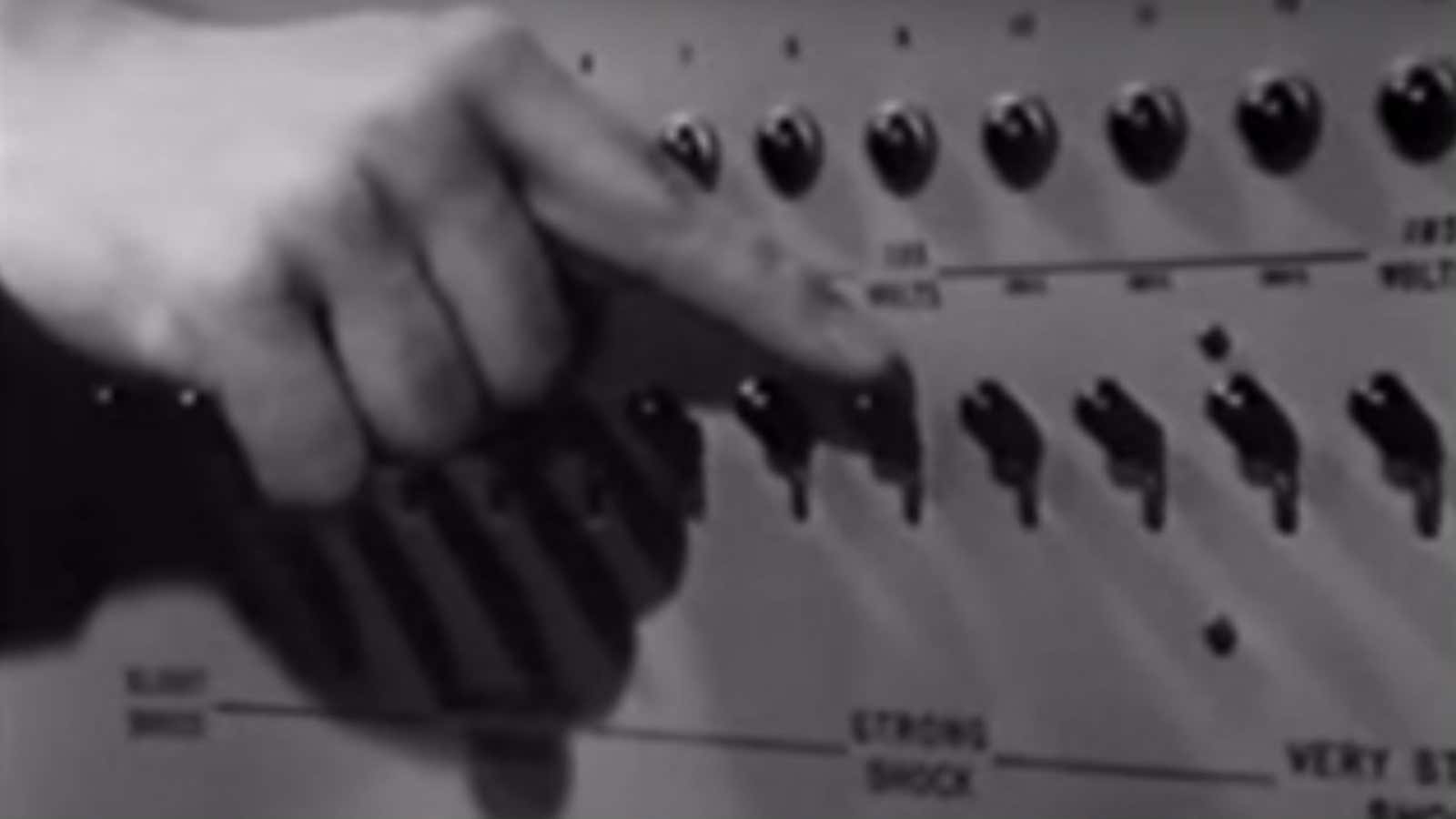Society has long held that when people commit wrongdoing, they cannot eschew responsibility by claiming that they were “just following orders.” The infamous plea became known as the “Nuremberg defense” during the post-World War Two trials, when Nazi war criminals used it to excuse their actions.
But a study published in Cell Biology on Feb. 18, titled “Coercion changes the sense of agency in the human brain,” suggests that this excuse isn’t just a pretext. People who’ve been ordered to do something bad to other people appear to genuinely experience a reduced sense of responsibility.
The researchers, from the Université Libre de Bruxelles and University College London, conducted a modified version of the famous 1960s Milgram experiments. In the original Milgram setup, participants were ordered to give electric shocks to another participant in an adjacent room. In fact, there were no shocks and the “other participant” was an actor, but around two-thirds of subjects continued administering what they thought were shocks of up to 450 volts, even as the actor cried out in pain and seemed to fall unconscious.
In the new version of the study, actual shocks were given—though only light ones. Participants sat across from each other, and had the option of two keys to press on a keyboard. One key did nothing. The other gave the person opposite a small electric shock and transferred a small sum of money (£0.05) from the “victim” to the “agent.” In some scenarios the agents could choose which key to press; in others they were ordered to press a certain key by an experimenter standing nearby. Shortly after they pressed either key, a tone would sound, and the participants were asked to judge how much time had passed between pressing the key and hearing the tone.
Previous work has established that people perceive the time between an action and its effect to be shorter when they carry out the action than when they don’t, or than when they’re passive agents (for example, if someone moves their arm to push a button). In this study, when people were ordered to press a key, they judged the time lapse before the tone to be longer than when they had chosen to press it themselves—regardless of whether or not it was the key for giving an electric shock.
The participants also repeated the test while wearing electroencephalogram caps. These showed reduced brain activity when they were coerced. This suggests that “the brain may treat consequences of one’s actions under coercion as if they were passively triggered,” wrote the authors.
Axel Cleeremans, one of the co-authors of the study, tells Quartz that the results have significant, and controversial implications. “In a way, the Nuremberg defense isn’t just about wishing to avoid blame,” he says. “It has some roots in actual subjective experience. And so it displaces responsibility towards people who are issuing the orders.”
Of course, that doesn’t excuse their actions. “The notion of subjective experience is completely different from legal responsibility,” Cleeremans notes. It’s also possible that in situations where large groups are issuing or following orders, individuals’ sense of responsibility could collectively “evaporate”—a question he hopes to address in future studies.




